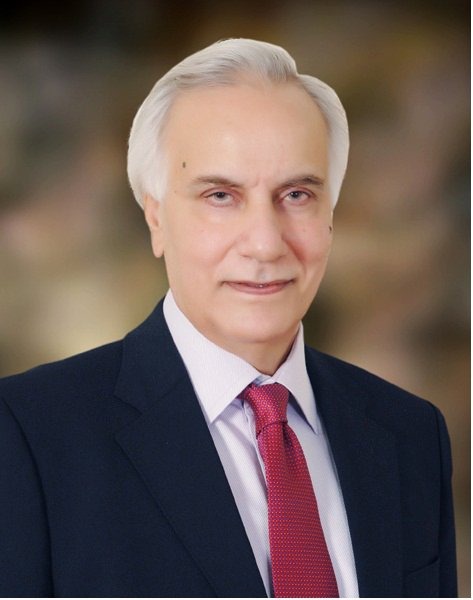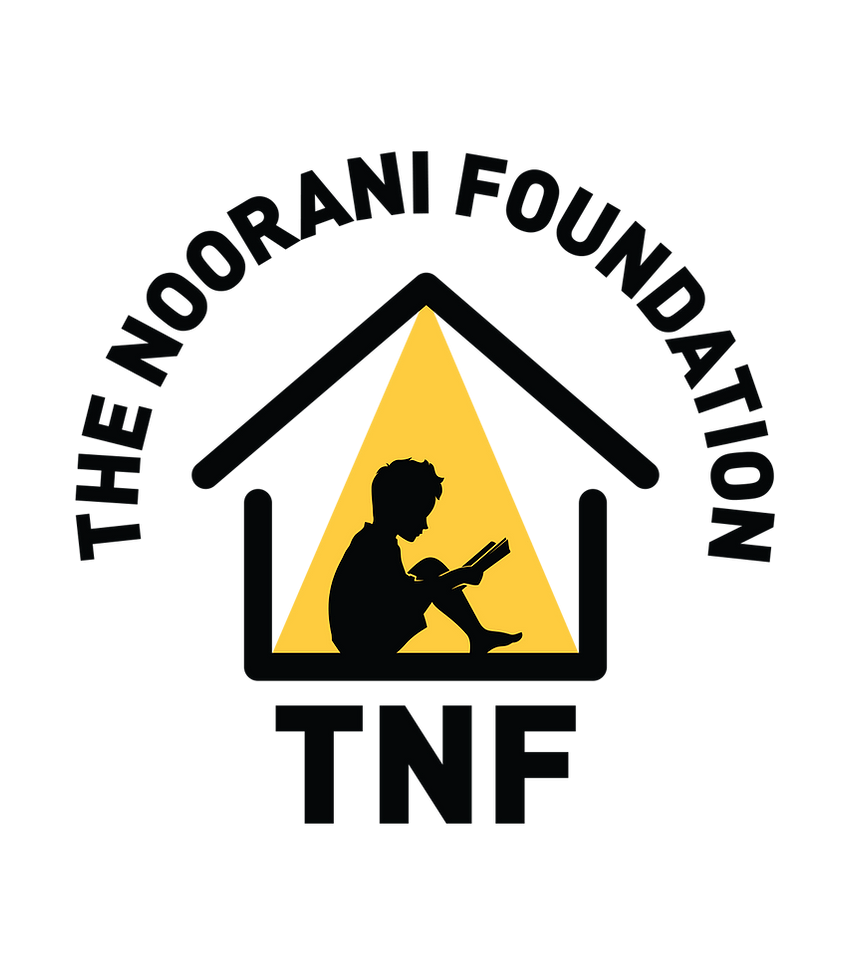‘Good quality boarding school education at low cost is possible’
Reference Article Link: https://www.brecorder.com/news/40275529
Mr. Tasneem Noorani served as Secretary of Interior from 2001 to 2004, the highest-ranking civil service responsible for formulating security policy in the Government of Pakistan. Subsequently, he held the position of Secretary Commerce, the top policymaker and implementer of all trade-related matters, both national and international, for the Government of Pakistan.
Mr. Noorani’s passion for education reform dates back to his tenure as Secretary of Education in the Government of Punjab. He served as Chairman of the Sargodhian Spirit Trust, which established a cadet college in Tando Allah Yar, Sindh, to provide quality education to boys from underprivileged regions of the country.
Currently, he leads The Noorani Foundation, in collaboration with Akhuwat to establish boarding schools for the underprivileged, providing them with a nurturing environment and empowering them to break free from poverty.

Following are the edited excerpts of a recent conversation BR Research had with Mr. Noorani:
BR Research: Tell us about yourself and your journey with the Noorani Foundation.
Tasneem Noorani: I Joined CSP in 1968 and retired in 2005 as Secretary of Interior and Secretary of Commerce. Since then, I have been doing social work. For the last many years, I have been heading the Sarghodian Spirit Trust, managed by the Old Boys’ Association of PAF Public School Sargodha, which is an elite boarding school. The purpose of the Trust was to build boarding schools in every province. Together we built a school in Tandoalayar in 2003 – SST Public School Rashidabad in interior Sind. I was the Chairman of SST for a long time but we could only build one school because of the land required and the cost of constructing that was so high that it was difficult to raise that kind of money.
When my term ended in 2019, I set up my own Trust – The Noorani Foundation – along with Dr. Amjad Saqib as a trustee and inspiration. My objective was to build boarding schools at a fraction of the cost of the previous boarding school we had built to be able to provide affordable education to the poor, who can’t pay the fees and dues.
BRR: Why did you want to build a boarding school and not a regular day school?
TN: In Pakistan, on hand we have madrassahs and on the other hand we have a few elite schools, a few Daanish schools, a few Army Cadet Colleges, and very few in the private sector. if the scale and style would be that of a Daanish School or a Hasanabdal it would cost three to four of billion rupees to build one school. On the other end of the scale of boarding schools are the madrassahs, most of which would cost a few lacs to build. But most madrassas hardly have any space for sports and extracurricular activities, essential for the growth of a young body and mind.
And we believe that there is no match for boarding school education. Boarding schools offer a lot more facilities apart from education. Boarding schools are institutions that enable a child to develop self-confidence and independence. Because the child spends so much time in school, he has the opportunity to take part in extracurricular activities and sports. It allows time to develop new interests and adopt new hobbies.in addition, to inculcating both ‘Taaleem and tarbiat’. Boarding in the context of Pakistan’s poor population is relevant because it takes the child from the caustic home environment of a poor household, where parents have little time for their children because of their large numbers and their economic struggle.
That’s the uniqueness of the basic underlying model of this concept, which can be replicated across the country. TNF Akhuwat Boarding School Faisalabad was a pilot project to prove the hypothesis that low-cost boarding schools are the answer if you want to raise millions of people living below the poverty line, to come out of poverty by educating their children in a healthy environment, where they get nutritious food, adequate sports and a character-building environment.
BRR: Could you share the total cost of the school and how many students you have right now?
TN: The academic block with facilities for a library, dormitories, dining hall, computer room, robotic lab, and laboratories are on 4 acres while the sports grounds are on 2 acres. In addition, accommodation for teachers and staff is on campus. The total cost of the school when we built it came to Rs180 million compared to over Rs4 billion required to build a regular boarding school in common parlance referred to as ‘Cadet College’.
The total capacity of the school is 320 students. Currently, we have 310 students from 49 districts in classes from grades 6 to 10, but we plan to expand the school to grade 12 and start the intake from grade 8 in the future. Initially, we started the school with no fee in the first year; and now in the second year, the minimum fee is Rs1000 per child. The reason is that we don’t want to hurt the self-respect of the students and want the parents to value what they are getting. Their ward is not in an orphanage and are paying a fee to get an education.
BRR: So, what is your revenue generation model?
TN: Only 7-10 percent of the total revenue comes from the fee, while the rest is from donations, sponsorships, and fundraising activities. Our current expenditure is Rs21,000 per child per month. We have to raise around Rs50 million every year to run and sustain the school.
BRR: Do you have plans to build new schools?
TN: RMWO – a welfare organization – has provided The Noorani Foundation with 12 acres of land in Alamabad, Sawabi, for a new boarding school. In this project, RMWO will be providing basic infrastructure, while TNF will be handling the rest of the finances through funding. The boarding school will replicate the Faisalabad campus almost exactly, featuring classrooms, laboratories, offices, dormitories, and staff housing. We are in the process of fundraising for the school and will start the construction as soon as we have raised enough.
BRR: How are you carrying out cost optimization besides the low-cost construction of the school?
TN: We have no air conditioners anywhere in the school, teacher housing, or offices. We have installed a significant amount of solar panels in the school that reduce the electricity cost. These efforts bring down the cost of power tremendously.
We also have only minimal admin and support staff. There is no overstaffing at the boarding school. There are only 4 admin people and only 10 people in the mess including cooks and waiters. Students are taught to help themselves with their work in the dormitories and bathrooms. There are only two janitors in the school and only 3 gardeners for a campus of 6 acres. In total, we have a staff of 40 including 18 teachers compared to the average of 150 staff in an equivalent school. So, this is another area where we optimize cost without compromising quality. We have only recently bought a vehicle for school for emergency purposes. Before that, we only had two motorbikes that were donated to the school.
These are the things we need to be frugal and realistic about. And I would also like to add here that the output of our school would be as good as any boarding school in the country at one-tenth the cost of construction and one-third the cost of operation cost.

